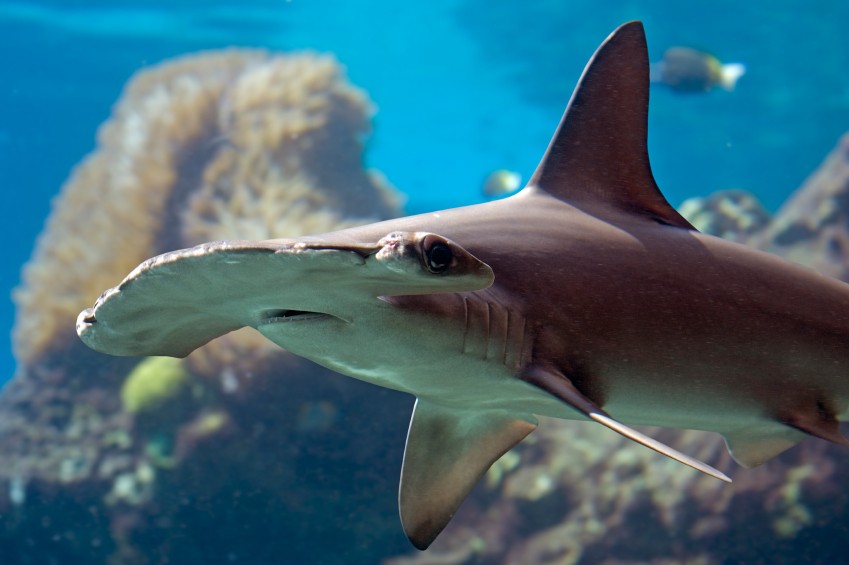Calling for Global Shark Protection at IUCN World Conservation Congress

As the IUCN (International Union for Conservation of Nature) World Conservation Congress opens in Jeju, Korea, Project AWARE, an IUCN member organization, and more than 35 government agencies and NGO partners issued the call to take immediate steps to save sharks and manta rays from the ever growing pressure of overexploitation. Specifically, we’re advocating the listing of sharks and rays under the Convention on International Trade in Endangered Species (CITES).
“We need to regulate international trade in sharks and rays, and CITES is one of the largest, most effective wildlife conservation agreements in existence. With 175 member countries, CITES provides an international framework for monitoring and controlling trade in species at risk and penalizing violations,” commented Ania Budziak, Project AWARE Associate Director for Science & Policy who is attending the IUCN congress.
Currently, only a handful of shark and ray species, including the whale shark, basking shark, great white shark, and sawfishes, are given protection listing under CITES, but many more species are under threat.
Nearly one out of five shark species is classified on the IUCN’s Red List as Threatened. That doesn’t include hundreds of species (almost half of all sharks) whose population status cannot be assessed because of lack of information. Scientists warn that, in actuality, a third of sharks might already be threatened.
Priority species for CITES listing in March 2013 are:
* Porbeagle shark
* Oceanic whitetip shark
* Scalloped hammerhead shark
* Giant manta ray and reef manta ray
* Devil rays
In addition to efforts to enlist support for CITES listings, Project AWARE has sponsored a motion at the congress calling for limiting catches of mako sharks. Other shark related motions included calls for review of all shark and ray species on IUCN’s Red List of Threatened Species for possible CITES regulation and protections for hammerhead sharks. Unlike many bony fish species, most sharks and rays are long-lived, late-to-mature, and produce few young, which makes them particularly vulnerable to overfishing and their populations slow to recover once depleted.
Overfishing is driving sharks and rays to the brink of extinction. It's high time that threatened and highly traded sharks and rays get the protection that many terrestrial animals have received from CITES. A commitment by the international community is crucial.
Join us in ensuring the right actions are taken on behalf of sharks and rays at CITES in March 2013. Your voice and the success of our CITES shark petition allow Project AWARE’s policy team to make profound arguments for change at critical events such at the IUCN congress. Thank you for supporting our work!



